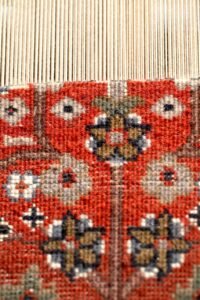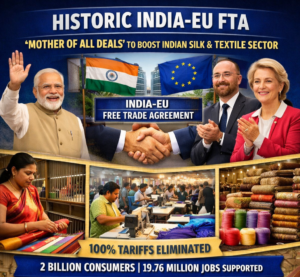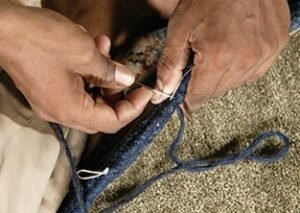ZERO WASTE EUROPE CALLS FOR CARPET INDUSTRY TO GO CIRCULAR
A collaborative group of carpet manufacturers, industry associations and members of civil society are working together to urge the European Commission and EU member states to make the carpet industry circular by introducing mandatory rules across Europe.
A call to action launched by Zero Waste Europe (ZWE), a European network of communities and local leaders working towards a completely circular economy, has already received support from DSM-Niaga, a science and technology circular economy enterprise, sustainable carpet manufacturers Interface, and Tarkett, a carpet and flooring specialist.
ZWE’s idea was a direct response to Eunomia’spublication, ‘Policy toolkit for carpet circularity in EU member states’, released on December 4 (yesterday). The toolkit provides a range of options for policy-makers to choose from, with the aim of accelerating the circular economy in the carpet sector while simultaneously helping to achieve the EU waste recycling and landfilling targets – a concept made all the more pressing considering 14 countries risk missing their 2020 EU recycling targets.
Joan Marc Simon, Executive Director at ZWE, said: “Current legislative and economic frameworks in the carpet sector lock the industry into a wasteful linear system. To build a true Circular Economy we need new rules and incentives to bring the whole sector to a higher level of ambition. This is why we support the measures proposed in the Eunomia toolkit, and we call on the European Commission and Member States to set the legal framework that will make the carpet sector go circular.”
Through the European Commission and member states, ZWE hopes to have all carpet companies agree to several mandatory rules by 2025. The rules would state that all commercial and household carpets put on the market should be: free of potentially harmful chemicals; reusable; separately collected; and fully recyclable.
This would entail a gradual phasing out of virgin materials, and a transition towards safe and healthy components that include an increasing rate of recycled or renewable content – but this can only be truly effective as a sustainable idea if adopted across the entire carpet industry.
As Myriam Tryjefaczka, Sustainability and Public Affairs Director at Tarkett EMEA, said: “Material transparency, eco-design and either closed or open loops are fundamental to develop a healthy and circular economy in the long run.”
Extended Producer Responsibility
ZWE, DSM-Niaga, Interface and Tarkett all support the use of transparent Extended Producer Responsibility (EPR) schemes, which would create necessary incentives to drive this transition. These companies commit to supporting the EPR schemes in countries that are considering introducing mandatory measures which would allow the carpet sector to go circular.
Read more: European countries urged to use economic incentives in next step towards circular economy
Lukas Hoex, Manager of Strategic Growth at DSM-Niaga, said: “DSM-Niaga is concerned about carpet waste, and believes producer responsibility is a big part of the solution. Manufacturers of any kind of product, also carpet, have to design and make products with recycling in mind, and support the collection of products after use. Mandatory disclosure of ingredients is in our view an urgent party of extended producer responsibility, since it supports the consumer to make better choices and then supports recyclers to handle products in the right way.”
Meanwhile at Interface, circular solutions are already in place. Geanne van Arkel, Head of Sustainable Development in Interface EMEA, said: “We’ve instituted circular solutions to creating products including identification and elimination of materials of concern, introduction of recycled materials and new processes to reclaim and reuse products across our global business.
“As a result, 58 per cent of raw materials in our products are recycled or bio-based. By creating modular flooring products that can be installed, replaced, reused and recycled simply we are leading our industry to design with the planet and people in mind. This transformative approach shows it is possible to make a profit sustainably. If we can do this, other businesses can too








How will this impact carpet industry in india